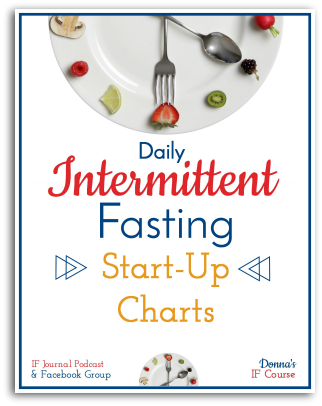
Think-Feel-Eat Episode #38: How to Fix Your Sleep Problems (I of II)
Hi! I’m Donna Reish, IF teacher, weight loss coach, blogger, and half of “The Minus 220 Pound Pair” as my husband and I have lost over 220 pounds together (160 of that in the past couple of years through the Weight Loss Lifestyle habits and strategies I teach!).
In this episode, I present the part one of two parts about How to Fix Your Sleep Problems.
In episode #34 of Think-Feel-Eat, I described the negative effects on our weight, belly fat, cravings, hunger, energy, and more that come from sleeping under seven hours a night. (Super interesting studies—go check them out!)
In this episode, part one of two parts on How to Fix Your Sleep Problems, I delve into the Daily Choices that we can make in our lives to influence our ability to fall asleep, stay asleep, and sleep well. (Next week I will look more into insomnia as well.)
This week I describe many daily lifestyle activities and choices that can keep us from sleeping well, including:
- Seeing sleep as a habit and a discipline that we must work on in order to overcome difficulties
- Consistently getting up and going to bed at similar times each day and night
- Movement and light first thing in the morning
- Morning routines
- Nighttime routines
- Working with our daily arousal system and our daily sleep system
- Melatonin
- Working out, exercising, and movement
- Napping and daytime lethargy
- And much more!
Find all of my episodes, outlines, and articles for my two weekly broadcasts:
(1) Weight Loss Lifestyle broadcast (formerly Donna’s Intermittent Fasting Broadcast)
Think Feel Eat #38: How to Fix Your Sleep Problems (I of II)
A. Review of Sleep Deprivation and Weight Issues—see what happens when we don’t sleep in TFE #34!
1. Sleep deprived means more cortisol
a. TFE Stress and Cortisol episodes: TFE #36 and TFE #37
b. Cortisol is a hormone that rises with stress
c. Cortisol causes many issues, including holding onto fat, increasing hunger, increasing cravings, etc.
d. 1-2 hours a day less sleep results in 24-30% more hunger
e. Another study shows those who regularly sleep fewer than seven hours have 26% more hunger than those who sleep eight hours per night
B. Sleep Is Influenced by Daily Choices
1. “A good tomorrow starts tonight!”
2. Going to sleep is a discipline!
3. Bad sleep habits are just that—habits…and can be undone/new habits learned the same way the current ones have been learned!
4. Getting up consistently early
a. Try moving your rising time incrementally by 15-30 minutes a day
b. Get up and open blinds, turn on overhead lights—tell your body it is daytime!
c. Movement is good first thing
d. Morning routines with times help—don’t sit as this is still a tired position.
e. Brain has huge effect on sleep—arousal system that creates wakefulness/alertness, etc., so work with this arousal system
f. Definite arousal system vs. sleep system—they work opposite of each other; when one is active, the other is shut down
g. Must have a strong signal to kick one out of one state and into another.
5. Sunlight and groundedness
a. Getting outdoors will help you sleep better
b. Sunlight first thing in the morning helps with depression, cortisol, serotonin, etc., but also has an effect on circadian rhythms and how you sleep
c. Sunlight helps melatonin cycle so melatonin is reduced in the morning and starts to be released at bedtime better
6. Melatonin
a. Hormone—not just an herb
b. When we can’t make enough of it ourselves, we can supplement with it
c. Take as little as absolutely needed to get the job done!
d. I use dissolvable ones from Amazon as they’re easy to break in two and start working faster since they dissolve
e. We can help our own melatonin production by letting light in first thing/getting light, waking up earlier, winding down in the evenings, etc.
7. Working out
a. Definitely helps you sleep better in the long run as the brain responds to how long you’ve been up, how active you are, etc., causing the sleep cycle/sleep center to start up.
b. Watch for exercise times
i. Morning exercise is thought to help with appetite during the day and sleep later that night
ii. Exercising too late at night can be a problem
1.) Can increase hormones that can keep you awake
2.) Some need to exercise no sooner than two hours before bed
8. No naps if they interfere in your sleep
a. Lounging too much, not enough movement, and sleeping during the day are some of worst offenders for good sleep at night
b. If naps don’t interfere or you absolutely need one, take a 20-30 minute one and don’t lounge afterwards. Move so body knows it isn’t wind down time!
9. Bedtime routine
a. Too much or too early of resting in the evening without movement makes body think it’s time to rest, but we don’t sleep, so it gets our melatonin production and sleep off
b. Lights
c. Same routine
d. Wind down
C. Get More Help!
1. Join our holiday weight loss challenge
2. Join my FREE FB group where I record videocast/podcast episodes!
3. Emails with teaching around weight management—articles, videos, free charts and booklets, and more












